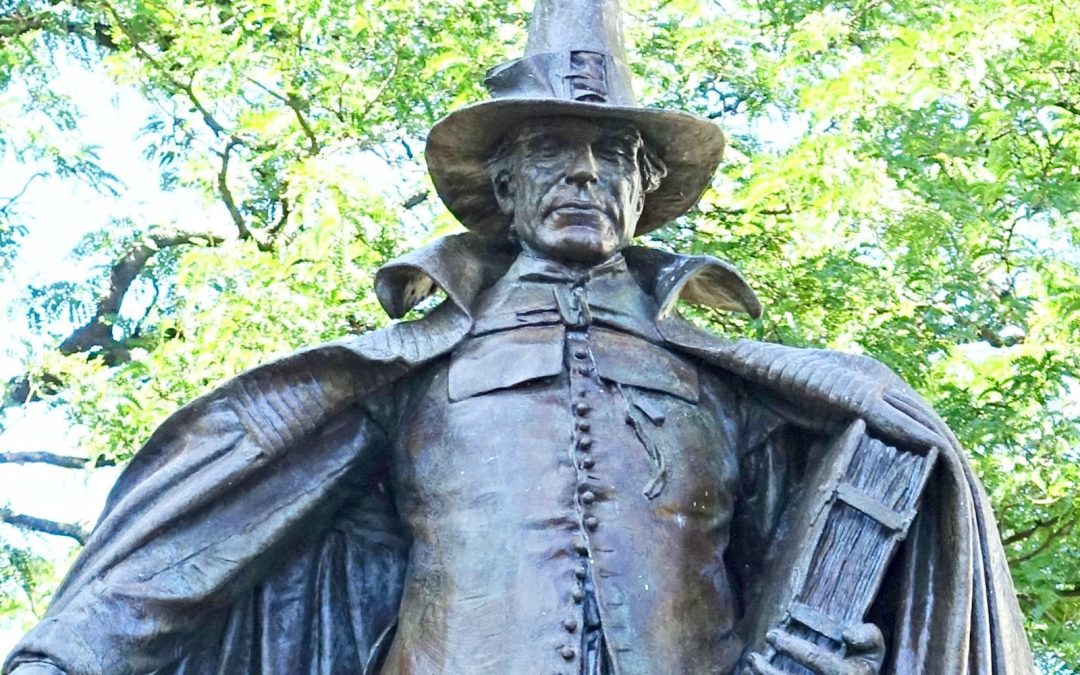Editor’s note: This article first appeared on Nov. 27, 2002. At the time of publication, Allen was professor of church history and spiritual formation at the James and Carolyn McAfee School of Theology. This article was revised on Nov. 22, 2019, to remove a reference to a 1623 Thanksgiving sermon discovered to be inaccurate by the author upon further research.
I once heard a non-Baptist governor’s wife at a Baptist college Thanksgiving service say we should be grateful to God that our Pilgrim forefathers brought religious liberty to these shores.
I demur.
Those Pilgrims celebrated the first Thanksgiving in 1621 to mark their initial harvest.
They invited the neighboring Wampanoag people, whose guest, Squanto, had saved the Pilgrims from starvation the year before, to join them.
The native people’s King Massasoit brought 90 friends and enough turkey, deer and corn to keep the feast going for days.
Etched in collective American memory is this image of diversity in union – the Wampanoag seated alongside the European Christians, sharing the bounty of the land.
This Pilgrim feast scene is the salutary myth embodied in the national Thanksgiving inaugurated by President Washington in 1789, revived by President Lincoln in 1863 and legislated by Congress in 1941.
So far so good. I revel in the inclusive symbolism of my black-and-white-clad wax pilgrims sharing the table with my turkey and corn pudding, tokens of Massasoit’s generosity.
As a Baptist, my problem with Thanksgiving occurs when it assumes the garments of other American virtues that do not fit the season. They cover up a religious bigotry that Baptist sacrifice helped restrain.
True, the governor’s wife did not know that the Pilgrims believed they were called by God to build a society where only their brand of Puritanical Christianity would be legal.
True, she did not know that about 50 years after the first Thanksgiving, the colonists launched a pre-emptive attack on the Narragansett tribe for fear that those peaceful people might attack them first; or that the Puritans sold the few survivors of this genocidal massacre of thousands of men, women and children into slavery.
True, she did not know that the Narragansetts lived peacefully in Rhode Island, a colony dedicated to full religious liberty for all, including native peoples; or that this colony had been established by Roger Williams, a temporary Baptist who never relinquished Baptist religious ideals.
True, she did not know that Roger Williams was there because he had been exiled by the Puritan state and church alliance, partly for insisting that if the Christians were going to take Indian lands, they ought to pay for them.
American Indian friends, whose language he had learned and whose ways he called more civilized than the uncivilized religious triumphalism of the Pilgrims, preserved Williams in the winter of his exile.
True, she did not know that colonial Baptists and other like-minded lovers of religious liberty had to overcome persecution and resistance from the Puritan establishment to pass the First Amendment to the United States Constitution a century after Williams’ witness.
She did not know; neither did many of her hearers. But somebody ought to tell them, so they can be thankful for Baptists this Thanksgiving.


